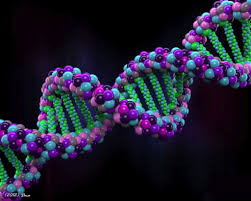
ヒトゲノムの解析など、遺伝子工学の驚異的な発達によって、私たち人間は、その存在
の根幹にまで関わる最新技術を手に入れつつあります。例えば、いわゆる「理想的な」
あるいは「デザイナー・ブランド」の胎児を創りだす可能性――倫理性から見て、
あるいは仏教の立場から考えて、この現実をどう捉えたらよいのか、ダライ・ラマの
見解をバイリンガルでご紹介します。
We need also consider the effects of limiting the diversity of humanity and the tolerance
that goes with it, which is one of the marvels of life.
この世には多様な人びとがいて、その多様性を認め合っていることは、人間の生の
驚異的なすばらしい一面です。その多様性が遺伝子操作によって狭まってしまうと
すれば、その影響も無視するわけにはいきません。
Particularly worrying is the manipulation of genes for the creation of children with
enhanced characteristics, whether cognitive or physical.
最も懸念されるのが、知的にせよ身体的にせよ、何らかの特性を増強した子供たちを
創り出すために遺伝子を操作することです。
Given that genetic technology is bound to remain costly, at least for the foreseeable
future, once it is allowed, for a long period it will be available only to a small segment of
human society, namely the rich.
少なくとも当面は、遺伝子操作は高額な処置となるでしょう。ですから許可されたと
しても、長い間は人間社会のごく限られた少数者だけしか利用できないでしょう。
はっきりといえば、金持ちです。
Thus society will find itself translating an inequality of circumstance (that is relative
wealth) into an inequality of nature through enhanced intelligence, strength, and
other faculties acquired through birth.
そうなると裕福な人たちの子供は知力や体力やその他の能力の面で増強されて生まれて
くることになります。つまり、相対的な裕福さという状況的な不平等から、個人の性質
という不平等を生むことになるのです。
When I think about the various new ways of manipulating human genetics, I can’t help
but feel that there is something profoundly lacking in our appreciation of what it is
to cherish humanity. In my native Tibet, the value of a person rests not on physical
appearance, not on intellectual or athletic achievement, but on the basic, innate capacity
for compassion in all human beings.
人間の遺伝子を操作するさまざまな新技術について考えるとき、人間性を慈しむとは
どういうことかという点で、理解にひどく欠如している面があると思わざるを
得ません。私が生まれ育ったチベットでは、人の価値は肉体的な外見や知的・身体的
能力などによって決まるのではなく、人類全体に対して心からの思いやりを持つという
基本的な能力によって決まるのです。
Even modern medical science has demonstrated how crucial affection is for human
beings, especially during the first few weeks of life. The simple power of touch is critical
for the basic development of the brain.
現代の医学でも、人間にとって愛情が不可欠であることが証明されています。特に
生まれて数週間はそうです。肌を触れるという単純なことの力が、脳の基本的な発達の
ために不可欠なのです。
In regard of his or her value as a human being, it is entirely irrelevant whether
an individual has some kind of disability――for instance, Down syndrome――or
a genetic disposition to develop a particular disease, such as sickle-cell anemia,
Huntington’s chorea, or Alzheimer’s.
人間としての価値という点で、ある人が何らかの障害を持っているかどうかは関係
ありません。例えば遺伝的な特性によってダウン症であるとか、鎌状赤血球貧血や
ハンチントン病やアルツハイマー病などを発症する可能性があったとしても同じです。
All human beings have an equal value and an equal potential for goodness. To ground
our appreciation of the value of a human being on genetic makeup is bound to
impoverish humanity, because there is so much more to human beings than
their genomes.
人間には誰しも平等な価値があり、善良さを体現する潜在的な可能性の面でも平等
です。遺伝的な性質を根拠に人間の価値を測ろうとすれば、人間は貧しいものになる
でしょう。なぜなら人間は遺伝子をはるかに超えた存在だからです。

The Universe in a Single Atom: The Convergence of Science and Spirituality
- 作者: Dalai Lama
- 出版社/メーカー: Harmony
- 発売日: 2006/09/12
- メディア: ペーパーバック
- この商品を含むブログを見る
■プライバシー・ポリシー
当ブログは、Amazon.co.jpを宣伝しリンクすることによってサイトが紹介料を獲得
できる手段を提供することを目的に設定されたアフィリエイト宣伝プログラムである、
Amazonアソシエイト・プログラムの参加者です。このプログラムにおいて、
第三者がコンテンツおよび宣伝を提供し、ユーザーからの情報を収集し、訪問者の
ブラウザーにクッキーを設定することがあります。プログラムにおいて情報の
扱いについてはAmazon.co.jpプライバシー規約をご確認ください。
Amazon.co.jp ヘルプ: Amazon.co.jp プライバシー規約
